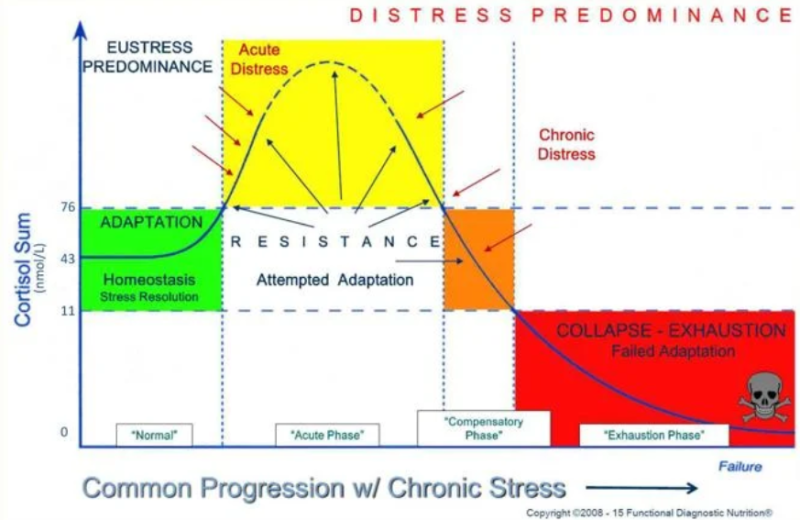By Mike Ososki, PMP
The link between your peak performance, negative stress and gut cannot be denied, as Maria Horstmann communicated well in our January Chapter Meeting at Maggiano's Little Italy's Buckhead location. High performers can’t outwork physiology, and chronic “always-on” stress quietly drains energy and disrupts focus, digestion, mood, and weight regulation.
Maria has first-hand knowledge of this kind of situation. From pre-diabetes with an eating disorder and sugar addiction, she reinvented herself to become a high energy healthy ball of fire with a metabolic health-focus coaching practice that is a walking testament to the results of implementin g her counsel.
g her counsel.
Two of our primal body modes are to protect and to repair. Protecting is the familiar fight or flight, and repairing is to rest and digest. Our vagal nerves communicate between brain, heart and digestive system, with 80% of all the signals going from gut to brain.
This connection and stress chemistry shifts the body out of repair mode and into protection mode, which is unsustainable long-term. Gut disruption often shows up first as “quiet signals,” such as brain fog, crashes, cravings, poor sleep, and stubborn belly fat. And our microbiome (look it up) is integral to our effective resilience and ongoing performance.
This graph shows the progression from eustress (good) to distress (bad);
Maria advises, “If the war room stays open, recovery shuts down, digestion and microbiome get weaker, and energy gets unreliable.” Don’t let it happen to you.
Here are 3 easy DIY strategies to shift your day:
- 60-second state shift: Stand up and do some deep breathing between and before meals, and after stress spikes. Your long exhale = downshift.
- Stabilize energy (no crashes): Eat protein for your first meal, and fiber/color daily with meals. Don’t do coffee-only mornings. Stable blood sugar = stable focus.
- Recover anchors (boundaries): Take a 10-minute walk after meals (or at least stand up). Plan on caffeine and digital cutoff times for most nights. Recovery is trainable.
Be on the lookout for your personal early warning signals. Gain clarity on a few key lab patterns and build a simple “inputs --> outcomes” plan that fits real workdays so you can guide smart next steps to rebuild reliable energy for work, life and long-term independence.
The Horstmann Method uses a data-driven approach based on functional lab testing. It can investigate, implement and integrate to help you identify stressors that inhibit, disrupt, and prevent your body from optimal functioning. Maria will personalize a plan based on YOUR data/body and using natural healing protocols.
To learn more, check out www.BeFabBeYou.com, then schedule a 20-min Clarity Call with Maria via Zoom. Reach out to her at https://BeFabBeYou.as.me/ClarityCall20Min








